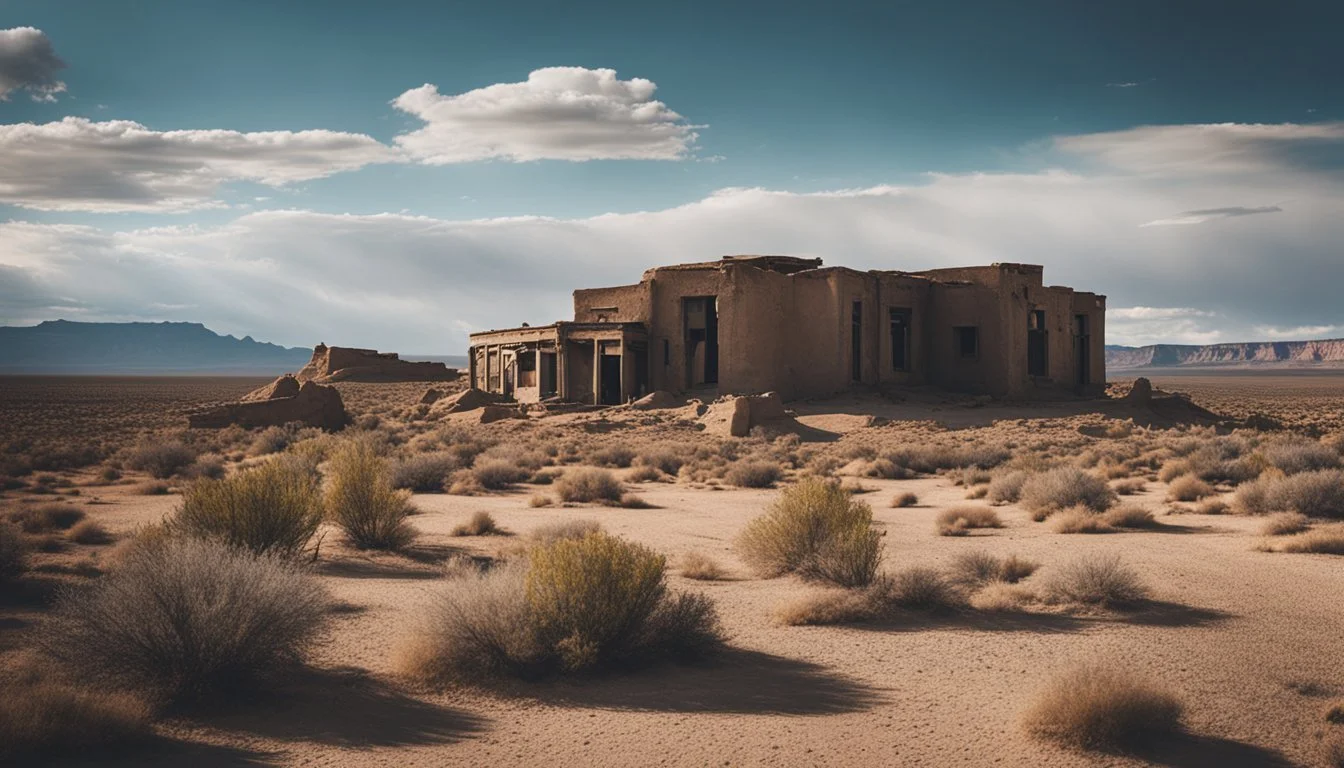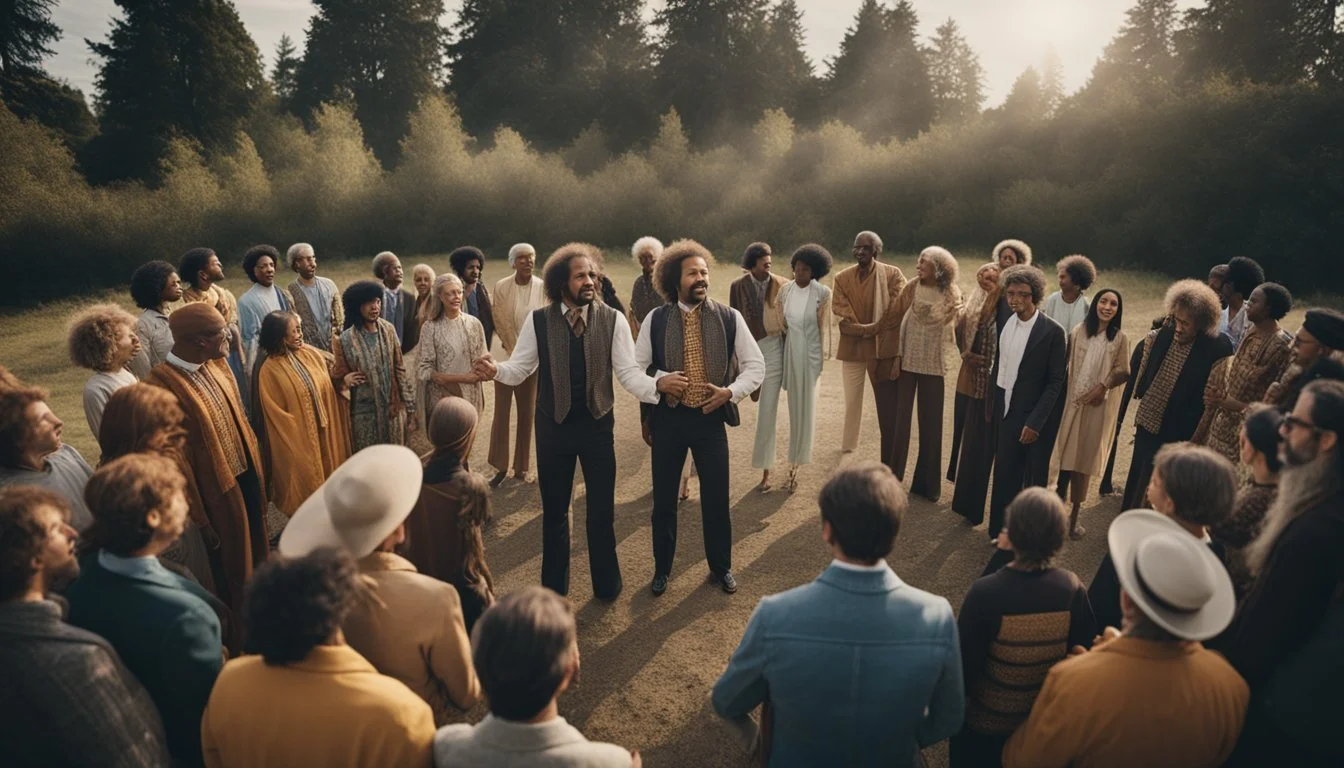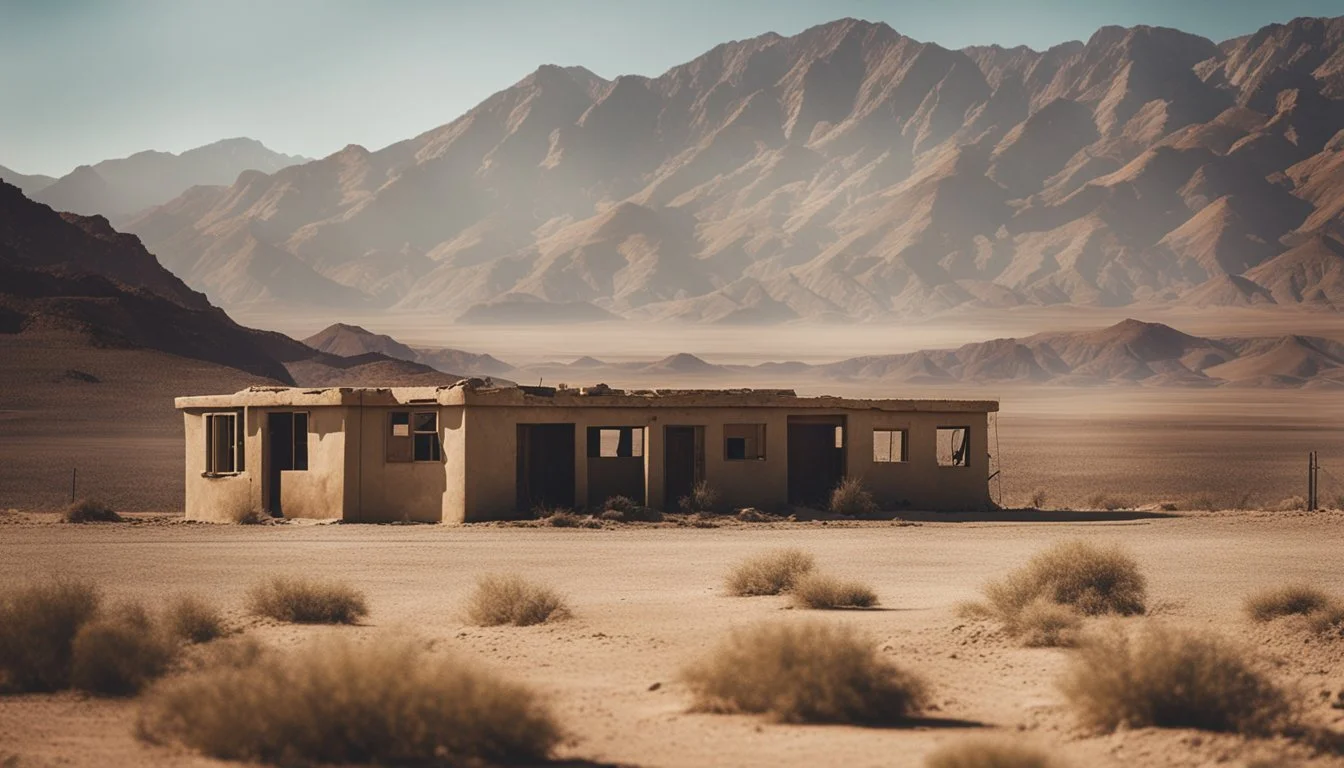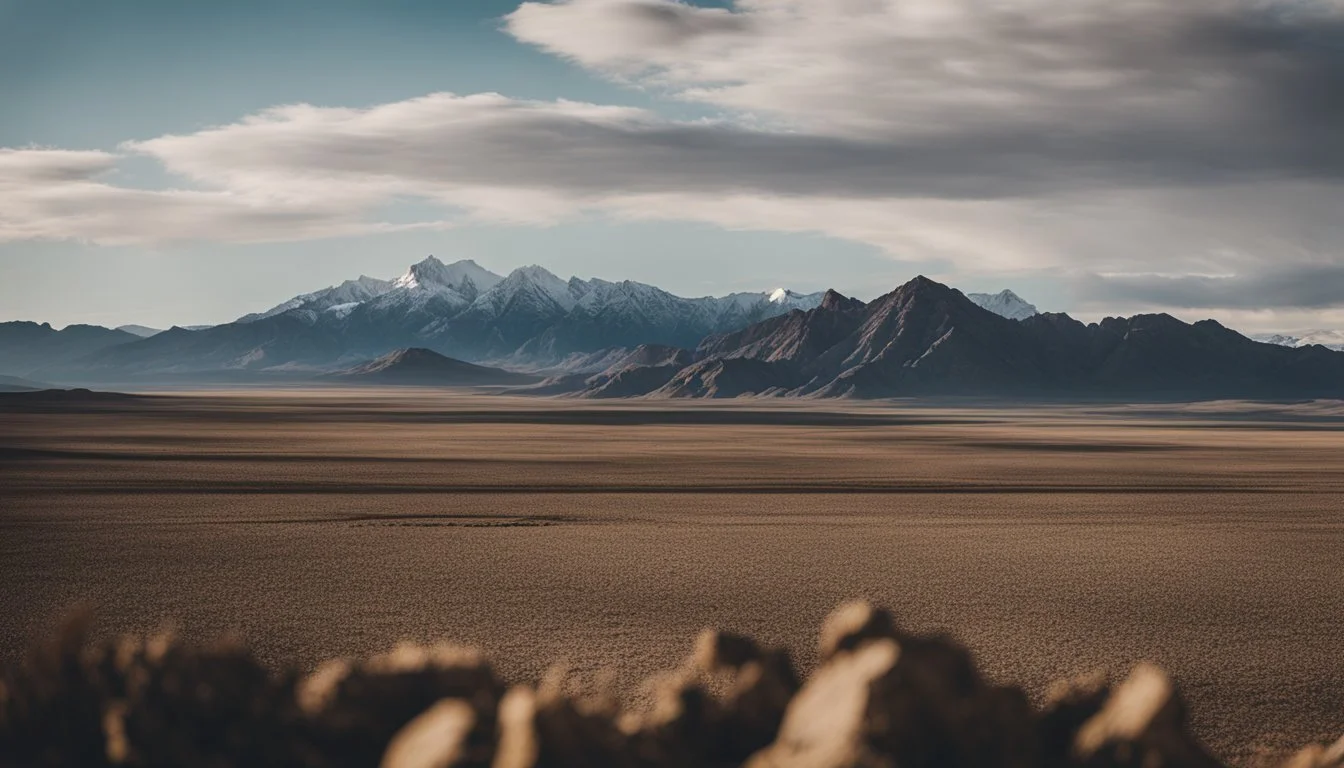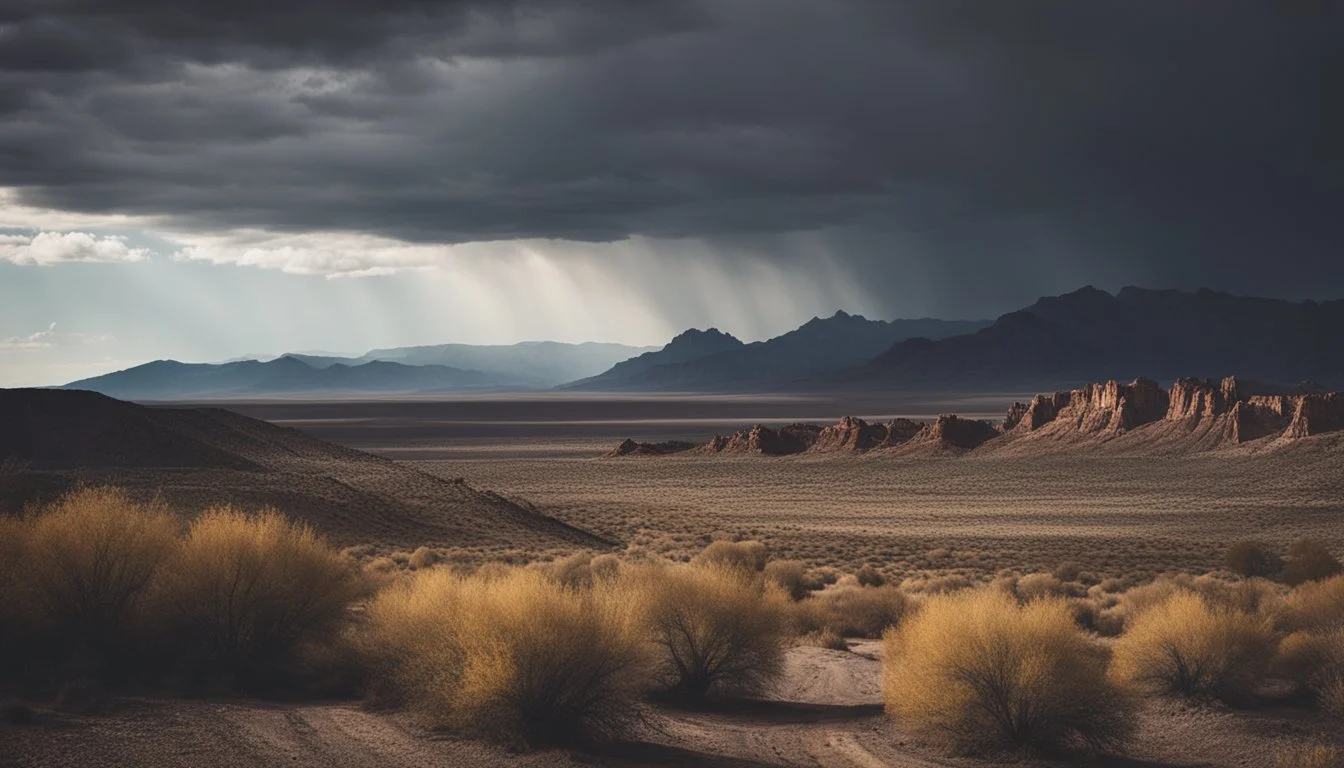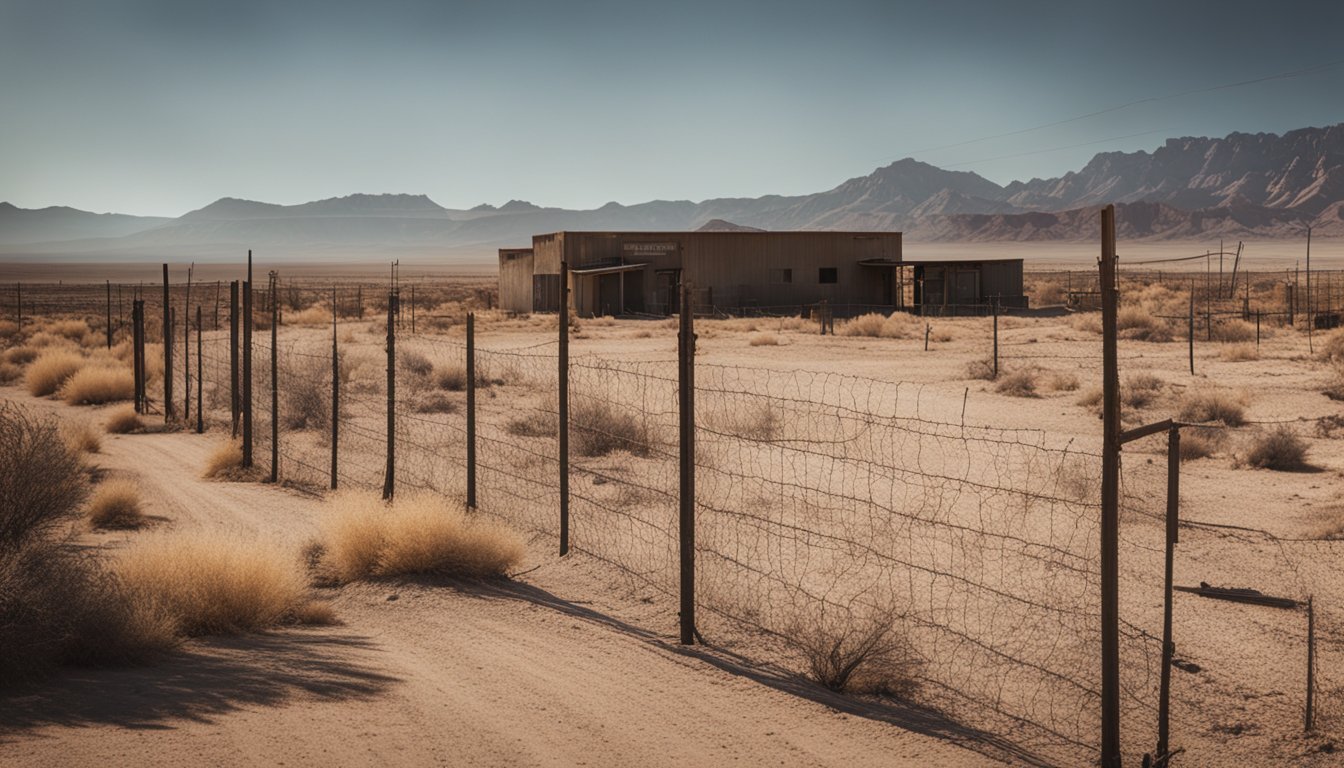10 True Crime Documentaries on Cults in Utah
Exploring Shadowy Secrets
Utah has a notorious history when it comes to cults, making it a hotspot for true crime documentaries. From polygamist groups to deceptive con men, the state has seen a wide range of disturbing cult activities that have drawn the attention of filmmakers and audiences alike.
These documentaries provide a chilling look into the lives and crimes of cults operating in Utah, offering viewers insight into their workings and the lasting impact on those involved. Through extensive interviews, archival footage, and expert analysis, these films explore both the psychological and social dynamics that allowed such organizations to thrive.
1) Wild Wild Country (2018)
Wild Wild Country is a compelling Netflix documentary series focusing on the controversial Indian guru Bhagwan Shree Rajneesh, also known as Osho.
The series delves into the establishment of the Rajneeshpuram community in Wasco County, Oregon, by Rajneesh and his followers during the 1980s.
Through archival news footage and interviews, it uncovers the transformation of the community from a seemingly utopian collective to one involved in serious criminal activities.
Figures like Ma Anand Sheela, Rajneesh’s personal assistant, play a pivotal role in the narrative. The documentary discusses events such as the mass poisoning plot that aimed to manipulate local elections.
For more information, visit the Wild Wild Country Wikipedia page.
2) The Source Family (2012)
The Source Family was a controversial cult led by Father Yod in the 1970s. They lived together in a communal setting in Los Angeles, practicing a form of utopian living.
Father Yod, a charismatic leader, started the group with spiritual teachings that combined Western esotericism with Eastern philosophies.
The cult gained attention for their flashy appearances and connection to the health food movement, as they owned The Source restaurant, a popular spot on Sunset Strip.
Despite their glamorous image, the cult's unconventional practices drew scrutiny. Personal accounts and media portrayals highlighted both the allure and the darker sides of the group's dynamics.
This documentary offers an in-depth look into the formation, lifestyle, and eventual disintegration of The Source Family, providing valuable insights into how such groups can attract and influence members.
3) Children of God: Lost and Found (2007)
"Children of God: Lost and Found" is a poignant documentary directed by Noah Thomson.
The film examines the lives of individuals who grew up in the controversial Children of God cult. Thomson, a former member himself, embarks on a journey to reconnect with those who have escaped. Through personal interviews and firsthand accounts, viewers gain an intimate look at the challenges faced by survivors.
The Children of God cult, notoriously known for mixing Christian teachings with abusive practices, left a lasting impact on its members. The documentary highlights their efforts to rebuild their lives after leaving the cult. It provides a compelling exploration of trauma, resilience, and the quest for normalcy.
Noah Thomson’s narrative offers a unique insider perspective, making "Children of God: Lost and Found" a valuable resource for understanding the psychological and emotional toll of cult indoctrination. The film underscores the importance of support networks for those recovering from such environments.
For more information, visit IMDb.
4) Holy Hell (2016)
Holy Hell explores the inner workings of the Buddhafield cult, which was led by Michel Rostand.
The filmmaker, Will Allen, spent 22 years in the group and captured its daily life and rituals on camera. His behind-the-scenes footage provides a detailed look at the cult's inner dynamics.
The documentary reveals how Rostand maintained control over his followers. Emotional and psychological manipulation played a significant role.
Followers believed Rostand possessed divine powers and looked to him as a spiritual guide.
Ultimately, Holy Hell illustrates the heavy psychological toll on its members. It serves as a critical examination of how charismatic leaders can exploit vulnerable individuals.
5) Prophet's Prey (2015)
"Prophet's Prey" dives into the troubling world of Warren Jeffs, the leader of the Fundamentalist Church of Jesus Christ of Latter-Day Saints (FLDS). The documentary exposes Jeffs' manipulation, brainwashing, and abusive control over his followers.
Directed by Amy J. Berg, this film is based on Sam Brower's 2011 book and includes insights from author Jon Krakauer.
Interviews with FLDS insiders and victims reveal the church's dark practices. Jeffs' influence led to widespread suffering, including sexual abuse and forced marriages, especially affecting young girls.
The documentary highlights how Jeffs continued to lead the FLDS from prison while serving a life sentence for his crimes.
This film sheds light on the disturbing realities within one of the world's most notorious cults.
For more information, visit IMDb.
6) Jonestown: The Women Behind the Massacre (2018)
This two-hour special focuses on four women close to Jim Jones, the infamous leader of the Peoples Temple. The program examines the role these women played in the planning and execution of the 1978 Jonestown Massacre, a tragic event where 918 people died.
The documentary highlights the influence of Jones' wife, Marceline, among other key figures in his inner circle.
The portrayal emphasizes how these women were used and manipulated by Jones to further his control and deception. It offers a deeper understanding of the individual responsibilities and dynamics within the cult.
Through interviews and historical footage, viewers gain insights into the inner workings of the Peoples Temple and the tragic events that unfolded in Jonestown.
For more information, visit the IMDb page on the film.
7) Leah Remini: Scientology and the Aftermath (2016-2019)
This documentary series dives into the world of Scientology through the eyes of actress Leah Remini, who was a member of the church for over 30 years.
Each episode explores the experiences of former Scientologists who share their stories of alleged abuse, manipulation, and harassment.
The series features interviews with high-ranking former church officials and members like Mike Rinder and Claire Headley, providing viewers with a comprehensive look into the church's controversial practices.
Leah Remini, along with co-host Mike Rinder, takes a critical approach, shedding light on topics such as the church's disconnection policy and its influence on members' lives.
The raw and personal testimonies add a powerful layer to the series, making it a significant entry in the true crime documentary genre.
8) Waco: Madman or Messiah (2018)
"Waco: Madman or Messiah" is a documentary mini-series that explores the infamous Waco siege of 1993. The series features interviews with survivors of the Branch Davidians, news clips, and audio recordings of their leader, David Koresh.
The documentary traces Koresh's rise as a self-proclaimed prophet and examines the tragic standoff between his followers and federal agents that ended in a deadly fire.
Interviews with nine Branch Davidians provide personal insights into Koresh's leadership and the group's dynamics. The documentary also highlights the intense 51-day siege that captured worldwide attention.
Viewers get a comprehensive view of the psychological and social mechanisms at play within the cult, as well as the dramatic and fatal conclusion of the federal raid.
For more information on "Waco: Madman or Messiah," visit the IMDB page.
9) The Family (2019)
"The Family" dives into the peculiar and secretive world of an extremist religious sect based in Utah. This documentary uncovers the group's charismatic leader, who claimed to have divine authority and led his followers with an iron grip.
The film explores the manipulative tactics used to control members, from psychological pressure to intense indoctrination.
Viewers get a glimpse into the daily lives of the sect's members, as well as the severe consequences faced by those who attempted to leave. The documentary also highlights the role of law enforcement in investigating the cult and bringing justice to its victims.
Intimate interviews with former members provide a harrowing look at the impact of the leader's influence on individual lives and families.
The narrative in "The Family" is compelling and sheds light on the darker side of religious fervor. Through its detailed investigation, the film raises important questions about faith, power, and control in isolated communities.
For more information, visit IMDb.
10) Heaven's Gate: The Cult of Cults (2020)
"Heaven's Gate: The Cult of Cults" is a 2020 documentary miniseries exploring the infamous UFO cult, Heaven's Gate. This cult, led by Marshall Applewhite and Bonnie Nettles, gained notoriety for the largest mass suicide on U.S. soil in 1997. The members believed their souls would ascend to a spaceship following the Hale-Bopp Comet.
The four-part series provides an in-depth look at the group's origins, beliefs, and ultimate tragic end. It includes interviews with former members and experts who analyze the psychological grip the leaders had on their followers.
Released on HBO Max, the series uses archival footage and personal stories to paint a vivid picture of the cult's history. It highlights how charismatic leadership can manipulate and control vulnerable individuals. This documentary is essential viewing for those interested in understanding the dynamics of cults and their far-reaching impacts.
For more on "Heaven's Gate: The Cult of Cults," visit the IMDb page.
History of Cults in Utah
Utah has a complex history with religious movements and cults. From early settlements to modern-day controversies, the state has been a hotspot for various groups seeking religious freedom or exerting control over their followers.
Early Religious Movements
In the mid-19th century, Mormon pioneers led by Brigham Young settled in Utah. The Church of Jesus Christ of Latter-day Saints (LDS Church) quickly became the dominant religion in the region.
During this period, splinter groups emerged. Some of these offshoots, like the Fundamentalist Church of Jesus Christ of Latter-Day Saints (FLDS), continued practicing polygamy after the LDS Church officially denounced it in 1890. These groups formed tight-knit communities, often isolated from mainstream society, which laid the groundwork for modern-day cults.
Modern-Day Cults
Utah’s modern history with cults is marked by notorious groups and leaders. One of the most infamous is Warren Jeffs of the FLDS, who was convicted of multiple crimes, including child sexual assault.
Recent documentaries like Keep Sweet: Pray and Obey delve into Jeffs' regime and the experiences of those within the FLDS community. Another notable case is that of Mark Hofmann, featured in Murder Among the Mormons, which explores his forgeries and murders that shook the Mormon community in the 1980s.
These cases highlight how charismatic leadership and isolated beliefs continue to shape the state's religious landscape.
Psychological Aspects of Cults
Cults often use psychological manipulation to maintain control over members, leading to profound mental health impacts. These effects can result in long-lasting consequences for individuals even after leaving the group.
Mind Control Techniques
Cults use a range of mind control methods to manipulate members. Isolation is one of these tactics, severing ties with family and friends to increase dependency on the cult. Thought reform or brainwashing, where repetitive teachings and strict adherence to doctrine are enforced, reshapes members' beliefs.
Love bombing involves overwhelming new recruits with affection and attention to create a sense of belonging. Additionally, fear and guilt are frequently employed to maintain loyalty and suppress dissent. Hence, members are often too scared to question or leave the group.
Impact on Members
The psychological effects on cult members can be severe. Many experience identity disturbances as their sense of self is systematically dismantled. This loss of identity can make integration back into society extremely challenging after departure.
PTSD, depression, and anxiety are common among former members, stemming from prolonged exposure to traumatic situations. The manipulation endured often results in a loss of autonomy, exacerbating mental health issues. Support groups and professional therapy are crucial for recovery, helping individuals rebuild their lives and coping mechanisms.
Legal Measures and Law Enforcement
Examining the intricate dynamics between cults and law enforcement, this section delves into government efforts and notable legal cases that have shaped the landscape of cult activities in Utah.
Government Involvement
Government agencies have been crucial in tackling cult activities in Utah. The state's law enforcement collaborates with federal bodies such as the FBI to investigate and prosecute criminal activities within these groups. Polygamous sects, particularly those with extensive illegal operations, have seen heightened scrutiny.
Enhanced legislation specifically targeting child abuse, human trafficking, and fraudulent practices within cults has been enacted. These laws enable authorities to act swiftly against leaders who exploit vulnerable members. Task forces and specialized investigative units have also been established to focus on dismantling these organizations, ensuring better protection for victims.
High-Profile Cases
Several high-profile cases have brought national attention to Utah's cult issues. The murder of Dr. Rulon Allred in 1977 by Ervil LeBaron’s polygamist cult is a notable example. This case unveiled deeply rooted conflicts within Mormon polygamist factions.
More recently, the "Keep Sweet: Pray and Obey" documentary on Netflix highlighted the crimes of a polygamist pastor in Utah, showcasing law enforcement's efforts to bring him to justice. Such cases underscore the intense investigative work and legal battles required to hold cult leaders accountable.
These cases not only expose the severity of the crimes but also illustrate the complexity faced by authorities in securing convictions against well-organized and secretive groups.

